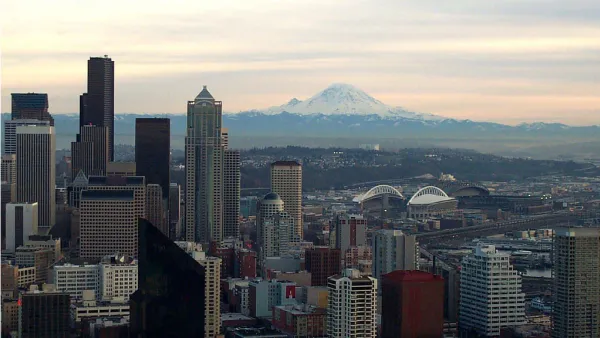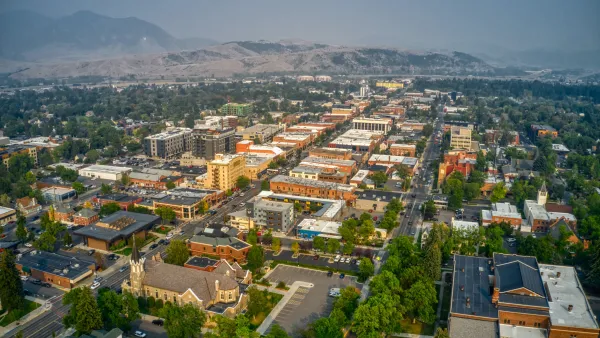The perception that a city has reached its maximum population and nobody else should be allowed in, or nothing should be allowed to change, is limiting the potential of our cities and increasing housing inequality.

Emily Badger of The Washington Post's Wonkblog tackles the question of how we determine when a city just can't take any more people by comparing our densest cities with those around the world, and discovering we're not necessarily as dense as we think. Further, an increase in population in one area results in economic and environmental benefits.
"Put more and more workers in one place, meanwhile, and you also get buzzing hubs like New York's Garment District or Boston's biotech corridor, where people working on the same problems bump into each other and share ideas and suppliers and become more productive. Put more people in a city, and the economy grows. It's the opposite of diminishing returns. The environmental costs, per person, can actually improve. In drought-stricken California, some of the lowest water consumption per capita is in San Francisco."
Badger notes that the use of environmental laws by NIMBYs, particularly in California, has led to greater economic inequality. The cost of housing has continued to rise as residents have blocked new housing, thereby limiting the supply for newcomers and stopping the natural evolution of our cities.
FULL STORY: There is no such thing as a city that has run out of room

Analysis: Cybertruck Fatality Rate Far Exceeds That of Ford Pinto
The Tesla Cybertruck was recalled seven times last year.

National Parks Layoffs Will Cause Communities to Lose Billions
Thousands of essential park workers were laid off this week, just before the busy spring break season.

Retro-silient?: America’s First “Eco-burb,” The Woodlands Turns 50
A master-planned community north of Houston offers lessons on green infrastructure and resilient design, but falls short of its founder’s lofty affordability and walkability goals.

Test News Post 1
This is a summary

Analysis: Cybertruck Fatality Rate Far Exceeds That of Ford Pinto
The Tesla Cybertruck was recalled seven times last year.

Test News Headline 46
Test for the image on the front page.
Urban Design for Planners 1: Software Tools
This six-course series explores essential urban design concepts using open source software and equips planners with the tools they need to participate fully in the urban design process.
Planning for Universal Design
Learn the tools for implementing Universal Design in planning regulations.
EMC Planning Group, Inc.
Planetizen
Planetizen
Mpact (formerly Rail~Volution)
Great Falls Development Authority, Inc.
HUDs Office of Policy Development and Research
NYU Wagner Graduate School of Public Service




























